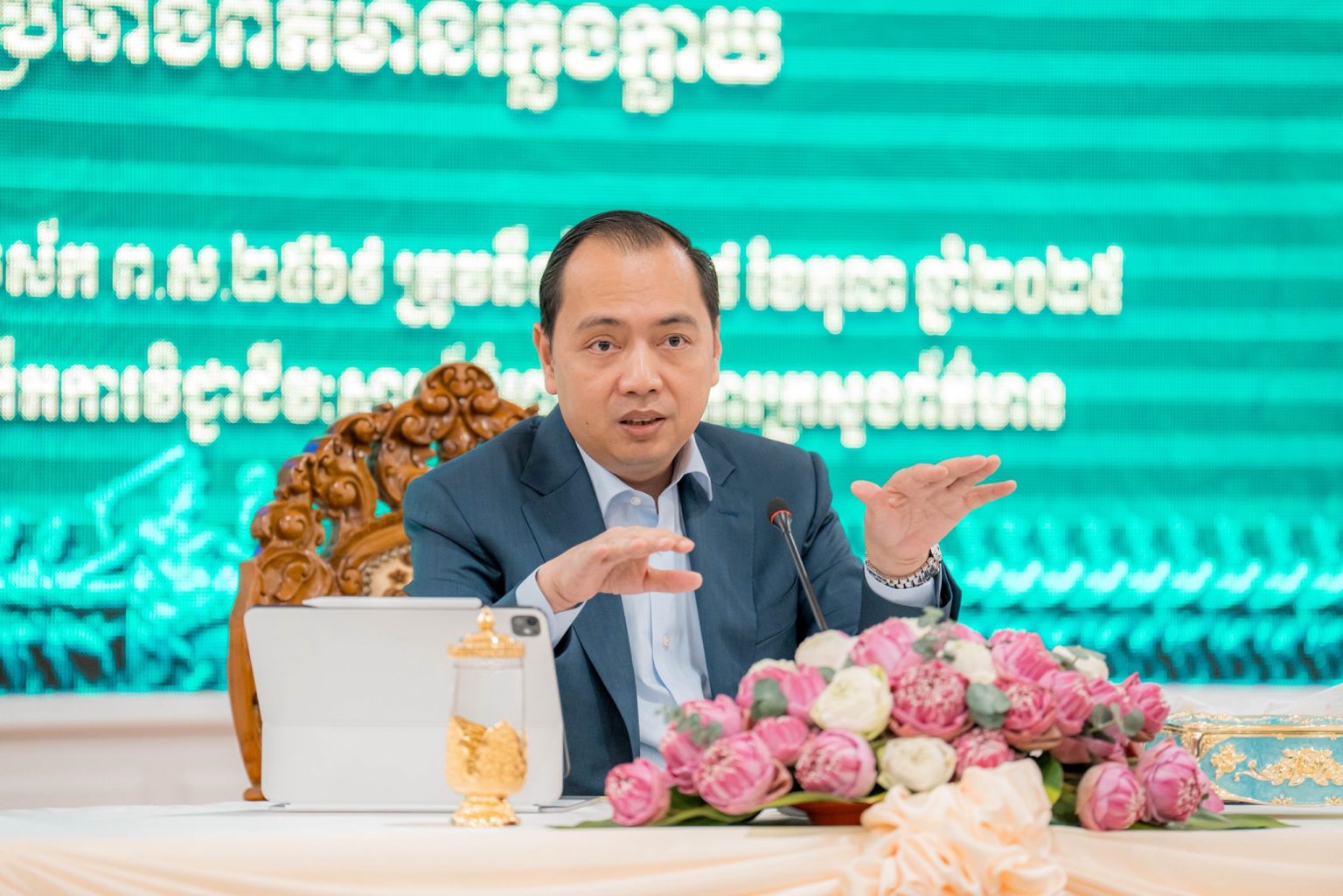Listen to the article
Cambodia Tackles Over 2,800 Fake News Cases in First Nine Months, Minister Reports
Cambodian authorities have identified 2,810 instances of disinformation and misinformation in the first nine months of the year, with the vast majority related to border issues, Information Minister Neth Pheaktra announced on October 29.
The minister highlighted that 2,122 cases—approximately 75 percent of all identified fake news—concerned border-related matters, signaling a concentrated effort to spread misinformation about Cambodia’s territorial boundaries. Other cases involved incitement and various forms of assault, though specific breakdowns were not provided.
“This is a significant concern,” Pheaktra said during an anti-fake news campaign event. The minister emphasized the need for broad participation from media stakeholders to combat the spread of false information that could potentially destabilize communities or spark social unrest.
The Information Ministry’s Anti-Fake News Commission has implemented several measures to address the growing challenge. These include strengthening enforcement of existing press laws to enhance journalistic ethics and professionalism, providing capacity-building training for reporters, and launching a nationwide campaign to raise awareness about disinformation.
“Fake news must be buried by real news. If you see fake news, don’t overlook it,” Pheaktra urged. “You can join the campaign to eliminate the news by giving the real news, accurate and trustworthy with credible sources in forms of pictures, videos or text.”
The commission has also worked to improve the efficiency of information distribution from official sources, creating mechanisms to issue timely public responses to counter false narratives before they gain traction.
Cambodia’s focus on border-related disinformation comes amid ongoing territorial discussions with neighboring countries and historical sensitivities regarding borders with Thailand and Vietnam. Misinformation on these topics often triggers nationalist sentiments and can complicate diplomatic efforts.
Experts note that Southeast Asia has become a hotspot for digital disinformation campaigns, with social media platforms serving as primary vectors for false information. The region’s rapidly expanding internet user base, combined with varying levels of digital literacy, creates fertile ground for misleading content to spread quickly.
“The most effective way to bury fake news is to push real news to dominate the newsfeed as quickly as possible,” Pheaktra explained. “We must not let the fake news spread for a long time. The longer it is available, the more risks it’ll bring.”
The Cambodian government’s anti-fake news efforts come as other countries in the region implement various approaches to combat disinformation, from legislative measures to education campaigns. Critics of government-led anti-fake news initiatives in Southeast Asia have raised concerns about potential overreach that might restrict legitimate expression or dissent.
Media observers point out that distinguishing between deliberate disinformation and legitimate reporting that authorities might find unfavorable remains a crucial challenge for any anti-fake news campaign. Ensuring transparency in the classification and handling of alleged fake news cases is essential for maintaining press freedom while combating genuinely harmful misinformation.
The Information Ministry has called on journalists and the general public to participate actively in the campaign, emphasizing that combating fake news requires collective responsibility rather than government action alone.
Fact Checker
Verify the accuracy of this article using The Disinformation Commission analysis and real-time sources.




10 Comments
2,122 of the 2,810 fake news cases being related to border issues is quite telling. Clearly there are forces at work trying to stoke tensions and sow discord around Cambodia’s territorial boundaries. Glad the government is taking this seriously.
Yes, the focus on border-related disinformation is concerning. Geopolitical tensions can easily be inflamed through the spread of false information, so the government’s vigilance is warranted.
Kudos to the Cambodian government for their efforts to identify and address the spread of fake news, particularly when it comes to sensitive border-related issues. Maintaining social stability and public trust is critical, and these steps seem like a step in the right direction.
Tackling disinformation is crucial for maintaining social stability and public trust. Strengthening journalistic ethics and building capacity within the media sector are smart approaches. I hope these efforts can make a real difference in curbing the spread of fake news.
Agreed, this is a big challenge that requires a multifaceted response. Building up media professionalism is key, along with clear enforcement of press laws.
2,810 fake news cases in 9 months is a staggering figure. The high concentration around border issues suggests targeted campaigns to destabilize the country. Glad to see the government is taking this threat seriously and working to combat it.
While the scale of the fake news problem in Cambodia is concerning, it’s encouraging to see the government taking proactive steps to address it. Strengthening journalistic ethics and cracking down on misinformation are crucial steps.
Interesting to see the scale of the fake news problem in Cambodia. 2,800 cases in 9 months is quite concerning. Glad to see the government taking proactive steps to combat misinformation, especially around border issues which seem to be a major focus.
The Cambodian government’s anti-fake news initiatives are a timely and necessary response to the growing disinformation challenge. Strengthening journalistic standards and cracking down on malicious actors is crucial for preserving the integrity of public discourse.
Absolutely. Misinformation can have severe consequences, especially when it touches on geopolitically sensitive topics like border disputes. Cambodia’s proactive approach is commendable.